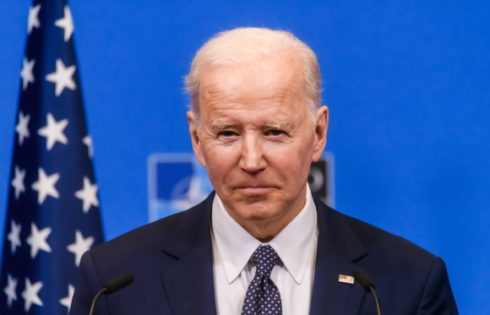
Rhode Island College is offering a course in toxic masculinity this upcoming semester, billed as a way to educate students about “better and saner versions of masculinity.”
Offered as part of the college’s first-year seminar, “The Rhetoric of Toxic Masculinity” aims to combat what it describes as a negative “outcome” in the male psyche, including concepts such as habitually suppressing fear or sadness, maintaining an appearance of stoicism, and the idea that “violence signifies power,” its description states.
The textbook for the course is titled “The Man They Wanted Me to Be: Toxic Masculinity and a Crisis of Our Own Making” by Jared Yates Sexton.
The book’s description calls it a “cultural analysis of the historical, psychological, and sociological sources that make up the roots of toxic masculinity.”
Sexton previously penned an op-ed for the New York Times regarding Donald Trump’s connection to toxic masculinity, referencing what he describes as the former president’s “macho-isms, his penchant for dividing the world into losers and winners, his lack of empathy for anyone but himself.”
Rhode Island College’s course description indicates agreement with the spirit of Sexton’s sentiment, saying that the “fact that Trump was able to get elected and that he maintains support especially among white men is a sign of the health and endurance of toxic masculinity.”
However, Trump likely won’t be receiving the same focus this semester.
Course instructor and RIC English Professor Michael Michaud told The College Fix that the course last semester “started just weeks after the Jan 6 riots. Talking about Trump in that context seemed very timely and relevant … he is no longer in the spotlight the way he was.”
According to Michaud, the class is centered around three assignments: a personal narrative in which students are instructed to “tell a story about gender and masculinity of your choosing from your own life,” analyzing films that “broaden … discussion of gender and masculinity,” and a critical analysis that tells students to “examine gendered messages about masculinity.”
Michaud expressed optimism about the course’s potential, noting his intention to incorporate “perspectives of non-white, non-working class, non-straight, non-male people into the class.”
This academic offering is hardly the first campus program designed to target toxic masculinity.
In 2018, Brown University made headlines for a program dubbed “Masculinity 101” in which student athletes discussed domineering behavior on and off the field, as well as the subjects of locker room talk. According to Garrett Robinson, then a senior at Brown, “people … understood it was serious.”
Hobart and William Smith Colleges offered a course in 2018 titled “Men and Masculinity,” in which instructors claimed that “masculinity is problematic – for men and for women.”
According to the course description, the course offered “a reinterpretation of men’s lives from the perspectives of history and sociology, informed by pro-feminist men’s studies.”
MORE: Toxic masculinity takes
IMAGE: El Nariz / Shutterstock
Like The College Fix on Facebook / Follow us on Twitter






Please join the conversation about our stories on Facebook, Twitter, Instagram, Reddit, MeWe, Rumble, Gab, Minds and Gettr.